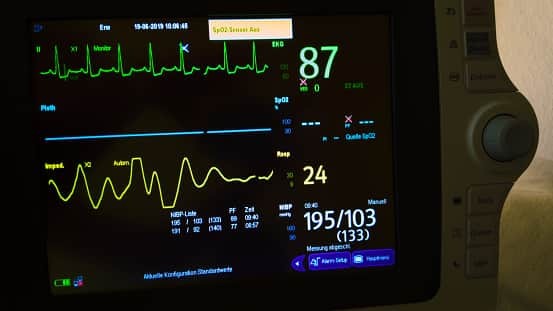One in 45 people living with irregular heartbeats, new figures reveal - what are the symptoms
and live on Freeview channel 276
The number of people diagnosed with a heart rhythm condition that puts them at increased risk of a stroke has now passed 1.5 million for the first time, according to new figures. The British Heart Foundation said its study of NHS data on atrial fibrillation, which causes an irregular heartbeat, has increased from one million in 2023 - a 50% rise - in the space of 10 years.
The latest figure means one in 45 people in the UK are known to be living with the condition but the charity fears there are at least another 27,000 people in the UK who remain undiagnosed and unaware.
Advertisement
Hide AdAdvertisement
Hide AdBHP medical director Professor Sir Nilesh Samani, Medical Director, said these figures show “a quite astonishing rise” in the number of people diagnosed with atrial fibrillation.
He said: “Research has helped us understand the links between atrial fibrillation and stroke and that has spurred the efforts we have seen in recent years to identify people with this potentially dangerous heart rhythm.
“What remains troubling is the sheer number of people who are undiagnosed and unaware that they are living with a heightened risk of stroke. Finding people with this hidden threat must remain a priority.
“We also need to continue to harness the power of science to develop new and innovative tools for identifying people at increased risk of developing atrial fibrillation so we can try and prevent the condition developing or at least identify people earlier if they develop it, as there are effective treatments available to reduce their risk.”
What are the symptoms of atrial fibrillation?
Advertisement
Hide AdAdvertisement
Hide AdAccording to the charity, someone with atrial fibrillation is five times more likely to have a potentially fatal or life-changing stroke. Atrial fibrillation is the most common form of abnormal heart rhythm and is believed to contribute to one in five strokes.
Better recognition and diagnosis of the condition is likely to be the key factor behind the rise in the number of people known to have atrial fibrillation. The charity says further research is needed to find new ways of identifying people who are at risk of atrial fibrillation so they can be diagnosed earlier.


The most common symptoms of atrial fibrillation are palpitations, breathlessness, and dizziness. However, many people do not experience any symptoms meaning they are unaware of the condition and treatments, as well as their increased risk of stroke. It can also be intermittent, increasing the challenge of identifying those who have it.
Comment Guidelines
National World encourages reader discussion on our stories. User feedback, insights and back-and-forth exchanges add a rich layer of context to reporting. Please review our Community Guidelines before commenting.
